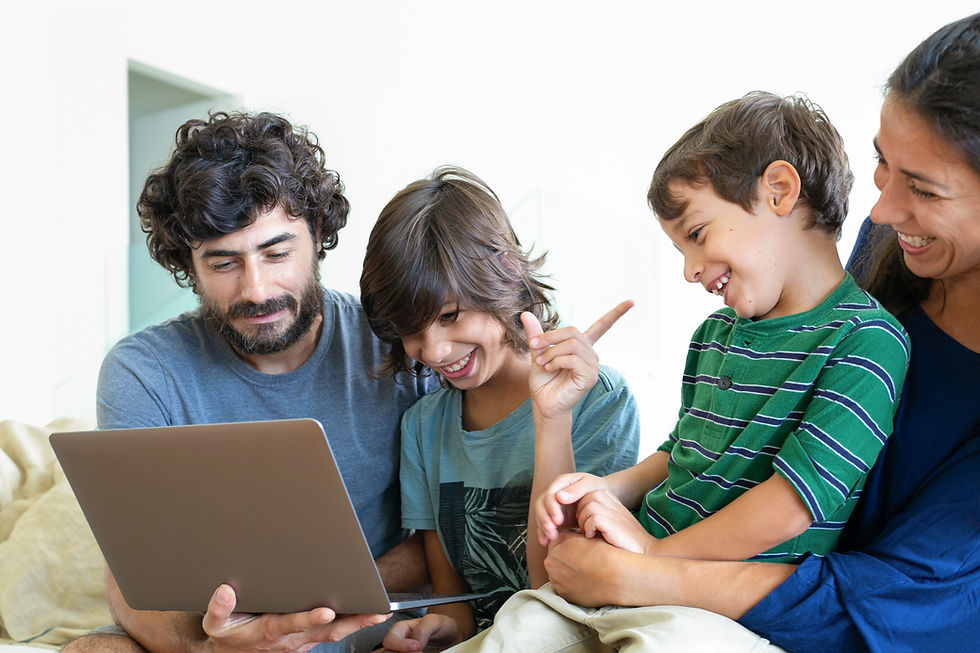Effective Communication and Interviewing (Part One)
- Gary-Alan Hopkins

- Mar 4, 2021
- 3 min read
Updated: Apr 7, 2021

Communication is a huge part of our lives whether it is verbal or non-verbal it is an intrinsic part of our society. The way a person utilizes communication can determine the individual's goal. For instance, you and your best friend are taking a road trip. You turn off the music to listen to the GPS while driving through a busy unfamiliar city. However, the silence is uncomfortable to your friend and they began talking about random topics. For some people, this situation would be annoying or unnecessary because they are not used to excessive talking. However, all communication has a purpose. In this case, the friend is uncomfortable in prolonged silence so they start talking about things that they find interesting in order to strike up a conversation. While all communication has a purpose all communication isn't always appropriate in a given situation. We need to look at what is effective communication. Let's dive deeper into what is effective communication and how it is used by reporters during interviews.
Effective Communication
What is effective communication? Effective communication is defined by M, P. (2018) as "a process of exchanging ideas, thoughts, knowledge and information such that the purpose or intention is fulfilled in the best possible manner." Let's look at how a reporter can utilize effective communication when conducting an interview.

Interviewing

Interviewing is an important part of a reporter's career. Sports reporters
regularly interview players, coaches and even fans. Before a reporter can start interviewing a player they need to understand how to effectively communicate, must have a deep knowledge of the subject matter and needs to understand how to structure their questions.
As a reporter, you need to structure questions for an interview in such a way that you get the needed information to write a story that will hold your reader's attention. At the same time, it must be relevant to your readers as well. Your job is to bring your readers on a journey that they will love and share. In order to do this, you need to research and dig for information. One tool at the disposal of reporters to help accomplish this goal is interviewing.
When a reporter needs to interview an athlete or coach they need to make sure they create the best possible questions to ask the interviewee. This requires background knowledge of the interviewee which is obtained through research. This research could be attending games and practices, watching previous games, through other players and coaches, or through reading about the player's background. There are plenty of ways to obtain the needed information. This information will then help you create and structure the interview questions and also will help you to not ask uninformed questions.
Once you have the information you need for the interview you need to design the questions you will use for the interview. There are different types of questions based on your objective. Let's take a look at the types of questions.
Question Types
Closed-Ended Questions
Questions that are considered "closed" don't offer the opportunity for the interviewee to elaborate on the question. These questions are used effectively when the interviewer is looking for a definitive short answer such as a yes or no or an answer that is a few words long. Closed-ended questions do not provide much information to the interviewer. These questions should be used very sparingly during an interview session.
Examples:
How many times a week do you practice?
What is your drink of choice?

Open-Ended Questions
On the other end of the spectrum, we have open-ended questions. Open-ended questions should make up the bulk of your interview questions. When you ask your interviewee an open-ended question as opposed to a closed-ended question you are able to obtain a lot more useful information. The reason you get more information is that an open-ended question allows the interviewee to elaborate on their answer. It isn't limiting to the interviewee.
Examples:
Explain your practice routine?
What happened in the fourth quarter that turned the game around for your team?

Final Thoughts
Communication and asking questions is an essential part of being a reporter, journalist and human. I will leave you with a couple of questions. What, in this week's material, was most helpful? How do you plan on structuring your future interviews?
References
M, P. (2018, Nov. 7). What is effective communication? Definition, characteristics, skills, significance, barriers. Retrieved on March 3, 2020, from https://theinvestorsbook.com/effective-communication.html.
Vareberg, K. (2021, Jan. 29). Week 8 [Screenshot]. Youtube. Retrieved on March 3, 2020, from https://youtu.be/140vHW5aul8.
What is Communication Process? definition and meaning - Business Jargons. Business Jargons. (2016, July 9). https://businessjargons.com/communication-process.html.




Hi Gary-alan - when I was learning interviews, it helped me to think about them in phases. I needed an opening phase, or something to orient the interviewee to the content and to me, and then I had a middle phase where I asked the bulk of my questions, and I had some closing question where they got to share any last thoughts. Understanding interviews in these stages really helped me. -Kyle